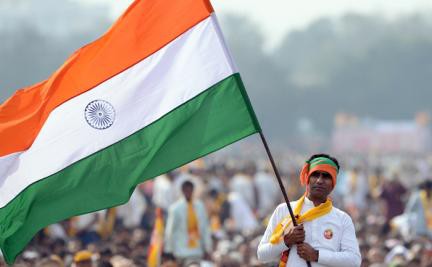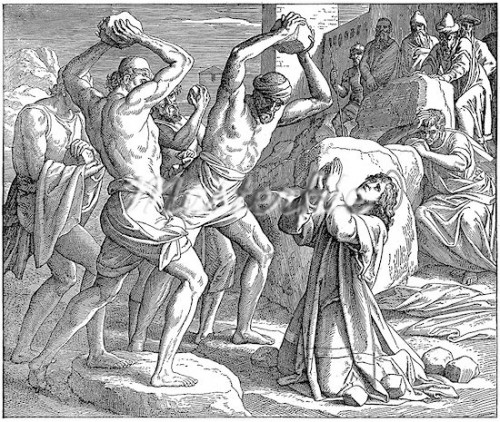
S. Gurumurthy:
Semitic Monotheism
The Root of Intolerance
http://www.bjp.org/
S. Gurumurthy argues that the monotheistic Semitic religions of what he calls "the West" brought intolerance to India. Traditionally, Gurumurthy argues, Indian culture was characterized by a liberal pluralism stemming from the polytheism of Hindu beliefs.
In the history of human civilization there have been two distinct ways of life -- the eastern and the Semitic. If we look at the history of India and of its people on the one hand and at the history of Semitic societies on the other, we find a glaring difference. In India the society and individual form the center of gravity, the fulcrum around which the polity revolves, and the state is merely a residuary concept. On the other hand, in the Semitic tradition the state wields all the power and forms the soul and the backbone of the polity. In India, temporal power was located in the lowest units of society, which developed into a highly decentralized social network. This was the very reverse of the centralized power structures that evolved in the Semitic tradition of the West. We had decentralizing institutions, of castes, of localities, of sects belonging to different faiths; of groups of people gathering around a particular deity or around a particular individual. Society was a collection of multitudes of self-contained social molecules, spontaneously linked together by socio spiritual thoughts, symbols, centers of pilgrimage, and sages. In the West the most important, and often the only, link between different institutions of the society was the state.
THE RESIDUAL STATE
Of course, the state also existed in India in the past, but only as a residual institution. It had a very limited role to perform. Even the origin of the state is said to be in the perceived necessity of an institution to perform the residual supervisory functions that became necessary because a small number of people could not harmonize with the rest in the self- regulating, self-operating and self powered functioning of the society. The state was to look after the spill-over functions that escaped the self-regulating mechanisms of the society. The Mahabharata, in the Santiparva, defines the functions of the state precisely thus. The state was to ensure that the one who strays away from public ethics does not tread on others. There was perhaps no necessity for the state at one point in our social history. The evolution of society to a point where certain individuals came to be at cross purposes with the society because of the erosion of dharmic, or ethical values, introduced the need for a limited arbiter to deal with "outlaws" who would not agree to be bound by dharma. That task was entrusted to the state. This appears to be the origin of the state here. So the society or the group, at whatever level it functioned, was the dominant reality and the state was a residual authority. The society had an identity distinct from the state. Social relations as well as religious and cultural bonds transcended the bounds of the state.
DHARMA VS. SOCIAL CONTRACT
People in the Semitic society, on the other hand, seem to have burdened themselves with the state the moment they graduated from tribalism and nomadic life to a settled existence. Thus the Semitic society never knew how to live by self-regulation. People never knew how to exist together unless their lives were ordered through the coercive institution of the state. The concept of self-regulation, the concept of dharma, the personal and public norms of action and thought that we have inherited from time immemorial, did not have any chance to evolve. Instead what evolved, for example in the Christian West, was the "social contract" theory of the state. And this became the basis of the nation state that dominated during the era of Western hegemony. But even before that, a mighty state, a nation-less state, had already evolved in the West. It was a state that cut across all nations, all societies, all ethnicities, all faiths, all races. This was the kind of state developed by the Romans. The statecraft of the Romans purveyed power and power alone. Later, after the collapse of the nationless state, tribal nationalism began to be assertive. This nation state, whose power was legitimated according to socio-religious criteria, became the model for the Semitic society. Far from being an arbiter, the state became the initiator, the fulcrum of the society.
STATELY RELIGION
Western society thus became largely a state construct. Even geography and history began to follow state power. In the scheme of things, the king symbolized total power, the army became crucial to the polity, and the police indispensable. The throne of the king became more important than the Church, and his word more important than the Bible, forcing even the Church to acquire stately attributes and begin competing with the state. That is why the first Church was founded in Rome. Because of the social recognition of state power and the importance that it had acquired, religion had to go to the seat of the state. That is how Rome, and not Bethlehem, became the center of Christian thought. The Church developed as a state-like institution, as an alternative and a competing institution. The Church began to mimic the state, and the Archbishop competed with the King. And finally religion itself became a competitor of the state. Naturally there were conflicts between these two powerful institutions -- between the state and the Church, and between the King and the Archbishop. Both owed allegiance to the same faith, the same book, the same prophet -- and yet they could not agree on who should wield ultimate power. They fought in order to decide who amongst them would be the legitimate representative of the faith. And, in their ^ght, both invoked the same God. The result was a society that was at war with itself; a society in which the stately religion was at war with the religious state. The result also was centralism and exclusivism, not only in thought, but also in the institutional arrangements. Out of such war within itself -- including between Christianity and Islam -- Semitic society evolved its centralist and exclusivist institutions that are now peddled as the panacea for the ills of all societies. As the monotheistic civilization rapidly evolved a theocratic state, it ruled out all plurality in thought. There could not be any doubt, there could not be a second thought competing with the one approved and patronized by the state, and there could not even be a second institution representing the same faith. The possibility of different religions or different attitudes to life evolving in the same society was made minimal. No one could disagree with the established doctrine without inviting terrible retribution. Whenever any semblance of plurality surfaced anywhere, it was subjected to immediate annihilation. The entire social, political and religious power of the Semitic society gravitated toward and became slowly and finally manifest in the unitary state. Thus single-dimensional universality, far more than plurality, is the key feature of Western society. The West, in fact, spawned a power-oriented, power-driven, and power-inspired civilization which sought and enforced thoughts, books, and institutions.
GUARDIAN SAGES
This unity of the Semitic state and the Semitic society proved to be its strength as a conquering power. But this was also its weakness. The moment the state became weak or collapsed anywhere, the society there also followed the fate of the state. In India, society was supported by institutions other than the state. Not just one, but hundreds and even thousands of institutions flourished within the polity and none of them had or needed to use any coercive power. Indian civilization -- culture, arts, music, and the collective life of the people guardianship of the people and of the public mind was not entrusted to the state. In fact, it was the sages, and not the state, who were seen as the guardians of the public mind. When offending forces, whether Sakas or Huns or any others, came from abroad, this society -- which was not organized as a powerful state and was without a powerful army or arms and ammunition of a kind that could meet such vast brute forces coming from outside -- found its institutions of state severely damaged. But that did not lead to the collapse of the society. The society not only survived when the institutions of the state collapsed, but in the course of time it also assimilated the alien groups and digested them into inseparable parts of the social stream. Later invaders into India were not mere gangs of armed tribes, but highly motivated theocratic war-mongers. The Indian states, which were mere residues of the Indian society, caved in before them too. But the society survived even these crusaders. In contrast, the state-oriented and state-initiated civilizations, societies and cultures of the West invariably were annihilated with the collapse of the state. Whether the Romans, the Greeks or the Christians, or the later followers of Islam, or the modern Marxists -- none of them could survive as a viable civilization once the state they had constructed collapsed. When a Semitic king won and wiped out another, it was not just another state that was wiped out, but all social bearings and moorings of the society -- all its literature, art, music, culture and language. Everything relating to the society was extinguished. In the West of today, there are no remnants of what would have been the products of Western civilization 1500 years ago. The Semitic virtue rejected all new and fresh thought. Consequently, any fresh thought could prevail only by annihilating its predecessor. At one time only one thought could hold sway. There was no scope for a second.
EASTERN PLURALISM
In the East, more specifically in India, there prevailed a society and a social mind which thrived and happily grew within a multiplicity of thoughts. "Ano bhadrah kratavo yantu visatah" ("let noble thoughts come in from all directions of the universe") went the Rigvedic invocation. We, therefore, welcomed all, whether it was the Parsis who came fleeing from the slaughter of Islamic theocratic marauders and received protection here for their race and their religion, or the Jews who were slaughtered and maimed everywhere else in the world. They all found a secure refuge here along with their culture, civilization, religion and the book. Even the Shia Muslims, fearing annihilation by their coreligionists, sought shelter in Gujarat and constituted the first influx of Muslims into India. Refugee people, refugee religions, refugee cultures and civilizations came here, took root and established a workable, amicable relationship with their neighborhood. They did not -- even now they do not -- find this society alien or foreign. They could grow as constituent parts of an assimilative society and under an umbrella of thought that appreciated their different ways. When first Christianity, and later Islam, came to India as purely religious concerns, they too found the same assimilative openness. The early Christians and Muslims arriving on the west coast of India did not find anything hostile in the social atmosphere here. They found a welcoming and receptive atmosphere in which the Hindus happily offered them temple lands for building a church or a mosque. (Even today in the localities of Tamilnadu temple lands are offered for construction of mosques). It was only the later theocratic incursions by the Mughals and the British that introduced theological and cultural maladjustments, creating conflict between the assimilative and inclusive native ways of the East and the exclusive and annihilative instincts of Islam and even Christianity. Until this occurred, the native society assimilated the new thoughts and fresh inputs, and had no difficulty in keeping intact its social harmony within the plurality of thoughts and faiths. This openness to foreign thoughts, faiths and people did not happen because of legislation, or a secular constitution or the teachings of secular leaders and parties. We did not display this openness because of any civilizing inspiration and wisdom which we happened to have received from the West. Yet, we are somehow made to believe, and we do, that we have become a somewhat civilized people and have come to learn to live together in harmony with others only through the civilization, the language, the statecraft and the societal influence of the West! It is a myth that has become an inseparable component of the intellectual baggage that most of us carry.
SURVIVING THE SEMITIC ONSLAUGHT
Religious fanaticism, invaded us and extinguished our states and institutions, our society could still survive and preserve its multidimensional life largely intact. Our survival has been accompanied, however, with an extraordinary sense of guilt. In our own eyes, we remain a society yet to be fully civilized. This is because, as the state in India quickly became an instrument in the hands of the invaders and colonizers, we were saddled not just with an unresponsive state, but a state hostile to the nation itself. A state-less society in India would have fared better. Such a paradox has existed nowhere else in the history of the world. When we look at the history of any other country, we find that whenever an overpowering alien state came into being, it wiped out everything that it saw as a native thought or institution. And if the natives insisted on holding on to their thought and institutions, then they were wiped out. But the Indian society survived under an alien and hostile state for hundreds of years, albeit at the price of having today lost almost all initiative and self confidence as a civilization.
GIVE ME YOUR PERSECUTED
How did the assimilative Hindu cultural convictions fare in practice, not just in theory and in the archives? This is probably best seen by comparing the Iranians of today with the Parsis of India. A few thousand of them who came here and who now number 200,000 have lived in a congenial atmosphere. They have not been subjected to any hostility to convert, or to give up their cultural or even racial distinction. They have had every chance, as much as the natives had, to prosper and evolve. And they did. They have lived and prospered here for 1500 years, more or less the same way as they would have lived and prospered in their own lands, had those lands not been ravaged by Islam. Compare an average Parsi with an average Iranian. Does the Persian society today display any native attributes of the kind that the Parsis, living in the Indian society, have managed to preserve? One can ^nd no trace of those original native attributes in the Iranian society today. That is because not only the native institutions, native faiths and native literature, but also the native mind and all vestiges of native originality were wiped out by Islam. That society was converted and made into a uniform outfit in form, shape and mental condition. On that condition alone would Islam accept it. What Islam did to the natives in Egypt, Afghanistan and Persia, or what Christianity did to the Red Indians in America, or what Christianity and Islam did to each other in Europe, or the Catholics did to Protestants, or the Sunnis did to Shias and the Kurds and the Ahmedias, or what the Shias did to the Bahais, was identical. In every case the annihilation of the other was attempted -- annihilation of other thoughts, other thinkers and other followers. The essential thrust of the Semitic civilizational effort, including the latest effort of Marxist monotheism, has been to enforce uniformity, and failing that, to annihilate. How can the West claim that it taught us how to lead a pluralistic life? If you look at history, you find that they were the ones who could not, and never did, tolerate any kind of plurality, either in the religious or the secular domain. If it has dawned upon them today that they have to live with plurality, it must be because of the violence they have had to commit against themselves and each other. The mass slaughter which the Western society has been subjected to by the adherents of different religious thoughts and by different tyrants is unimaginable, and perhaps they are now sick of this slaughter and violence. But the view we get, and are asked to subscribe to, is that the "civilized" West was a peaceful society, and that we brutes down here never knew how to live at peace with ourselves and our neighbors until liberated by the literate. What a paradox!
TEMPORAL POWER
The foundation of the Semitic system is laid on temporal power. For acceptance and survival in this system even religion had to marry and stick to temporal authority at the cost of losing its spiritual moorings. It was with this power -- first the state power, which still later was converted into technological power -- that the Christian West was able to establish its dominance. This brute dominance was clothed in the garb of modernity and presented as the civilization of the world. The aggressively organized Western society, through its powerful arm of the state, was able to overcome and subordinate the expressions of the self- governing decentralized society of the East that did not care to have the protection of a centralized state. Our society, unorganized in the physical sense, although it was much more organized in a civilizational sense, had a more evolved mind. But it did not have the muscle; it did not have the fire power. Perhaps because of the Buddhist influence, our society acquired disproportionately high Brahmatejas, Brahminical piety and authority, which eroded the Kshatravirya, the temporal war-making power. So it caved in and ceded temporal authority to the more powerful state and the statecraft that came from outside. The society that caves in is, in terms of the current global rules, a defeated society. This society cannot produce or generate the kind of self-confidence which is required in the modern world.
DYNAMIC CHRISTIANS, STAGNANT MUSLIMS
The nation-state was so powerful, that other countries, like India, could not stand against it. And when the nation-state concept was powered by religious exclusivism it had no equal. When religion acquired the state, the church itself was the first victim of that acquisition. Christianity suffered from the Christian state. It had to struggle not only against Islamic states and Islamic society, but also against itself. As a consequence, it underwent a process of moderation. First, it experienced dissent, then renaissance through arts, music and culture. Thus Christianity was able to overcome the effect of theocratic statecraft by slowly evolving as a society not entirely identified with the state. First the state began to dominate over the Church on the principle of separation between the religious and temporal authorities. The result was the evolution of the secular state. Thus the King wrested the secular power from the Archbishop. Then through democratic movements following the French Revolution, the people wrested power from the King. Later commerce invaded public life as the prime thrust of the Christian West. The theocratic state abdicated in favor of a secular state, the secular state gave way to democracy and later democracy gave way to commerce. Then power shifted from commerce to technology. And now in the Christian West, the state and the society are largely powered by commerce and technology. The Christian West today is even prepared to give up the concept of the nation-state to promote commerce fueled by technological advance. Look at the consolidation that is taking place between Mexico, Canada and the United States of America around trade, and the kind of pyramidal politico economic consolidation that is taking place in Western Europe. All this is oriented towards only one thing West.
ISLAM REMAINED UNCHANGED
While the Christian West has evolved dynamically over the past few centuries, the story of Islam is one of 1500 years of unmitigated stagnation. There has never been a successful attempt from within Islam to start the flow, so to speak. Anyone who attempted to start even a variant of the mainstream flow -- anyone who merely attempted to reinterpret the same book and the same prophet -- was disposed of with such severity that it set an example and a warning to anyone who would dare to cross the line. Some, who merely said that it was not necessary for the Islamic Kingdom to be ruled by the Prophet's own descendants were wiped out. Some others said that the Prophet himself may come again -- not that somebody else might come, but the Prophet himself may be reborn. They were also wiped out. The Sunnis, the Shias, the Ahmedias, the Bahais -- all of whom trusted the same prophet, revered the same book and were loyal to the same revelation -- were all physically and spiritually maimed. From the earliest times, Islam has proved itself incapable of producing an internal evolution; internally legitimized change has not been possible since all change is instantly regarded as an act of apostasy. Every change was -- and is -- put down with bloodshed. In contrast, the Hindu ethos changed continuously. Though, it was always change with continuity: from ritualistic life, to agnostic Buddhism, to the Ahimsa of Mahavira, to the intellect of Sankara, to the devotion of Ramanuja, and finally to the modern movements of social reform. In India, all these changes have occurred without the shedding of a single drop of blood. Islam, on the other hand retains its changelessness, despite the spilling of so much blood all around. It is the changelessness of Islam -- its equal revulsion towards dissent within and towards non-Islamic thoughts without -- that has made it a problem for the whole world.
ISLAM IN INDIA
The encounter between the inclusive and assimilative heritage of India and exclusive Islam, which had nothing but theological dislike for the native faiths, was a tussle between two unequals. On the one side there was the inclusive, universal and spiritually powerful -- but temporally unorganized - native Hindu thought. And on the other side there was the temporally organized and powerful -- but spiritually exclusive and isolated -- Islam. Islam subordinated, for some time and in some areas, the Hindu temporal power, but it could not erode Hindu spiritual power. If anything, the Hindu spiritual power incubated the offending faith and delivered a milder form of Islam -- Sufism. However, the physical encounter was one of the bloodiest in human history. We survived this test by fire and sword. But the battle left behind an unassimilated Islamic society within India. The problem has existed since then, to this day.
ISLAM, INDIA AND THE CHRISTIAN WEST
The Hindu renaissance in India is the Indian contribution to an evolving global attitude that calls for a review of the conservative and extremist Islamic attitudes towards non-Islamic faiths and societies. The whole world is now concerned with the prospect of extremist Islam becoming a problem by sanctifying religious terrorism. So long as the red flag was flying atop the Kremlin, the Christian West tried to project communism as the greatest enemy of world peace. It originally promoted Islam and Islamic fundamentalism against the fanaticism of communism. The West knew it could match communism in the market-place, in technology, in commerce, and even in war, but it had no means of combating communism on the emotive plane. So they structured a green Islamic belt -- from Tunisia to Indonesia -- to serve as a bulwark against Marxist thought. But that has changed now. When communism collapsed, extremist Islam with its terrorist tendencies instantly emerged in the mind of the Christian West as the major threat to the world.
HINDUS SURVIVED MUSLIM INVASION
We must realize that we have a problem on hand in India, the problem of a stagnant and conservative Islamic society. The secular leaders and parties tell us that the problem on our hands is not Islamic fundamentalism, but the Hindutva ideology. This view is good only for gathering votes. The fact is that we have a fundamentalist Muslim problem, and our problem cannot be divorced from the international Islamic politics and the world's reaction to it. To understand the problem and to undertake the task of solving it successfully, we must know the nature of Hindu society and its encounter with Islam in India. As a nation, we are heckled by the secularist historians and commentators: "You are caste-oriented, you are a country with 900 languages, and most of them with no script," they say. "You can't even communicate in one language, you don't have a common religious book which all may follow. You are not a nation at all. In contrast, look at the unity of Islam and its brotherhood." But the apparently unorganized and diverse Hindu society is perhaps the only society in the world that faced, and then survived, the Islamic theocratic invasion. We, the Hindu nation, have survived because of the very differences that seem to divide us. It is in some ways a mind- boggling phenomenon: For 500 to 600 years we survived the invasion of Islam as no other society did. The whole of Arabia, which had a very evolved civilization, was run over in a matter of just 20 years. Persia collapsed within 50 years. Buddhist Afghans put up a brave resistance for 300 years but, in the end, they also collapsed. In all of these countries today there remains nothing pre- Islamic worth the name save for some broken down architectural monuments from their pre-Islamic past. How did our society survive the Islamic onslaught? We have survived not only physically, but intellectually too. We have preserved our culture. The kind of music that was heard 1500 years ago is heard even today. Much of the literature too remains available along with the original phonetic intonations. So the Indian society continued to function under a hostile occupation even without a protective state. Or rather, we survived because our soul did not reside in an organized state, but in an organized national consciousness, in shared feelings of what constitutes human life in this universe that happens to be such a wonderfully varied manifestation of the divine, of Brahman.
HINDUTVA AS INDIA'S ANCHOR
The assimilative Hindu cultural and civilizational ethos is the only basis for any durable personal and social interaction between the Muslims and the rest of our countrymen. This societal assimilative realization is the basis for Indian nationalism, and only an inclusive Hindutva can assimilate an exclusive Islam by making the Muslims conscious of their Hindu ancestry and heritage. A national effort is called for to break Islamic exclusivism and enshrine the assimilative Hindutva. This alone constitutes true nationalism and true national integration. This is the only way to protect the plurality of thoughts and institutions in this country. To the extent secularism advances Islamic isolation and exclusivism, it damages Hindu inclusiveness and its assimilative qualities. And in this sense secularism as practiced until now conflicts with Indin nationalism. Inclusive and assimilative Hindutva is the socio-cultural nationalism of India. So long as our national leaders ignore this eternal truth, national integration will keep eluding us.
Center for Policy Studies, Madras.
1993.
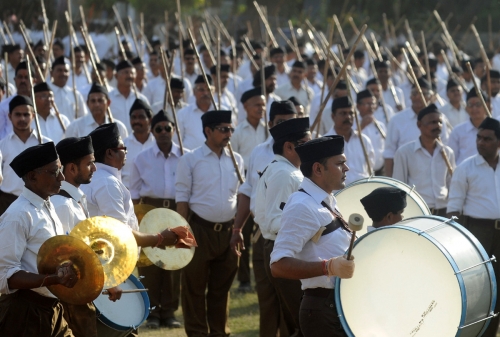
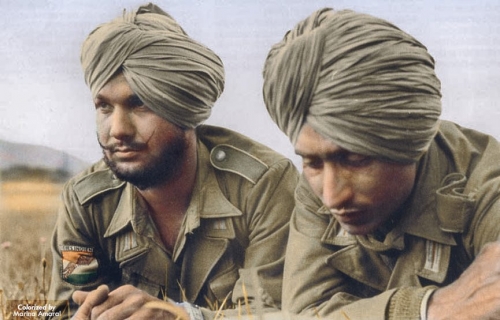
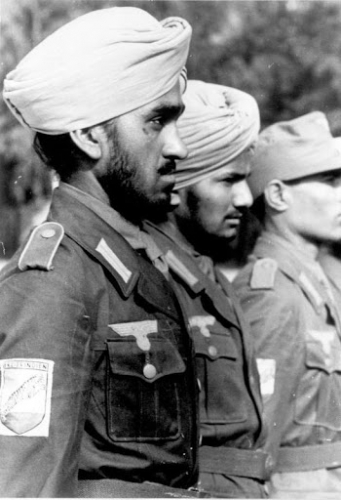 A nation is formed by a majority living therein,” he declared. “What did the Jews do in Germany? They being in minority were driven out from Germany.”
A nation is formed by a majority living therein,” he declared. “What did the Jews do in Germany? They being in minority were driven out from Germany.”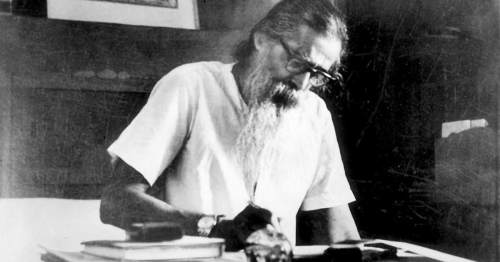



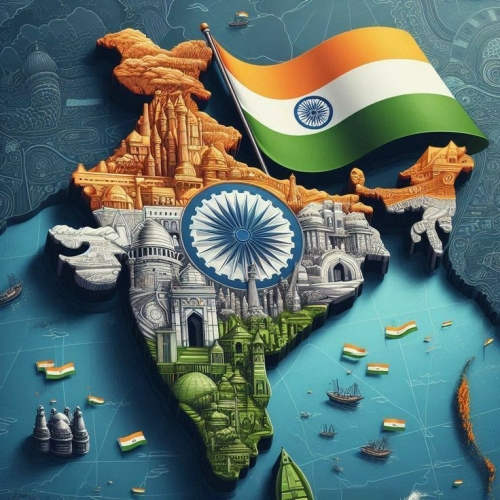
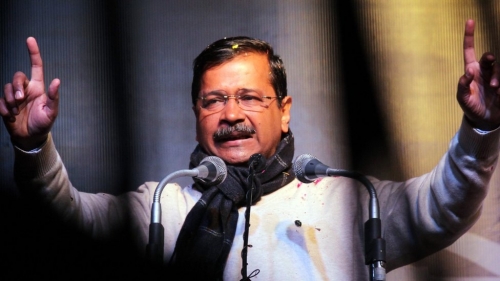
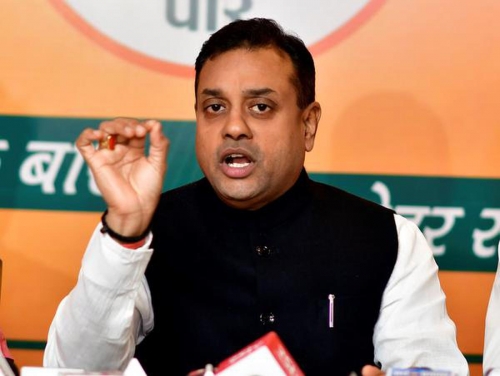
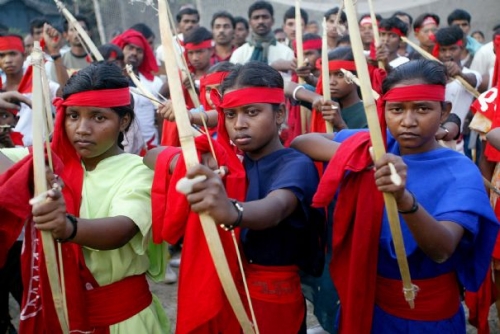
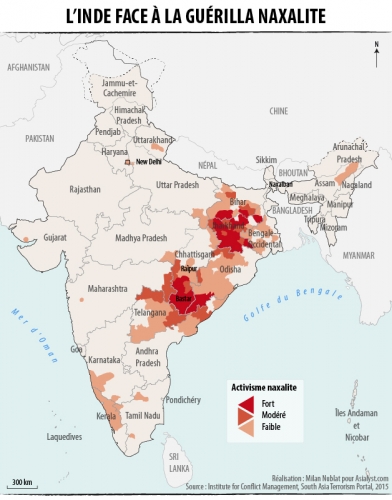


 del.icio.us
del.icio.us
 Digg
Digg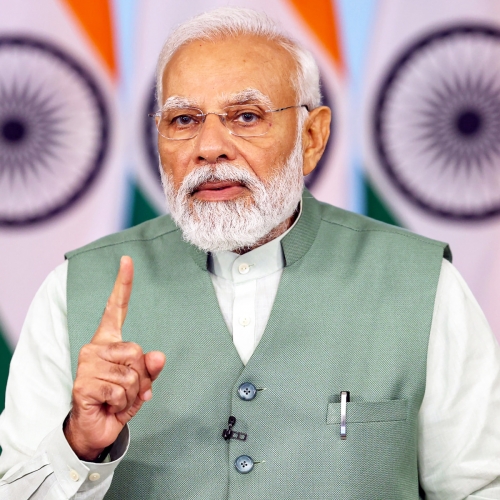
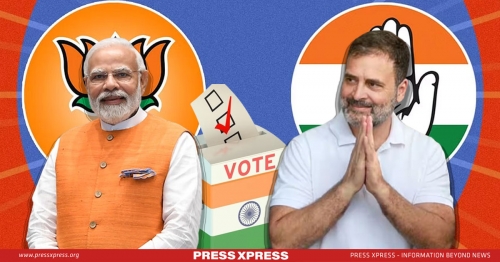
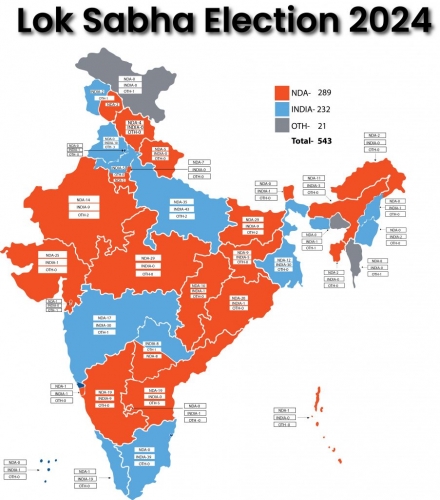

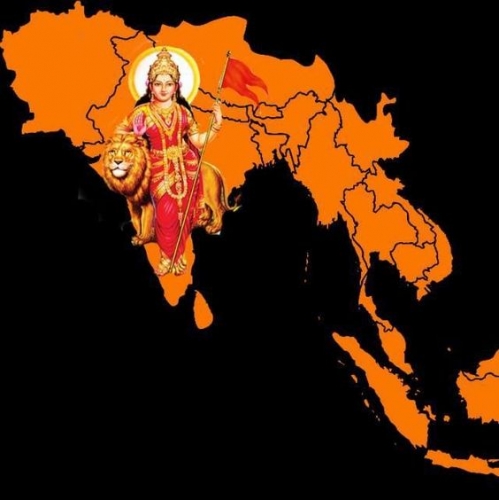
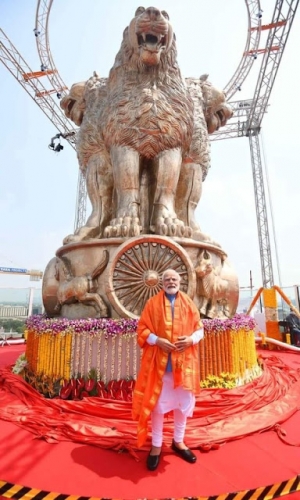
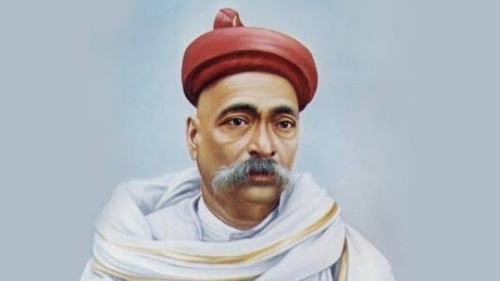
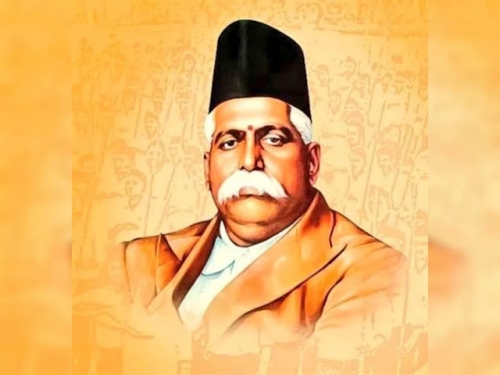
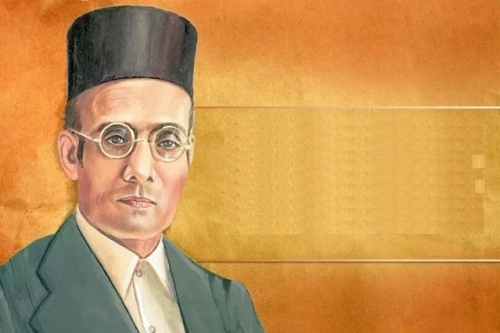
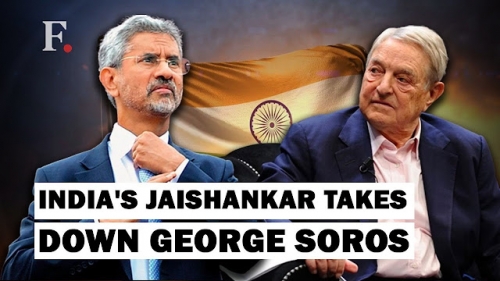
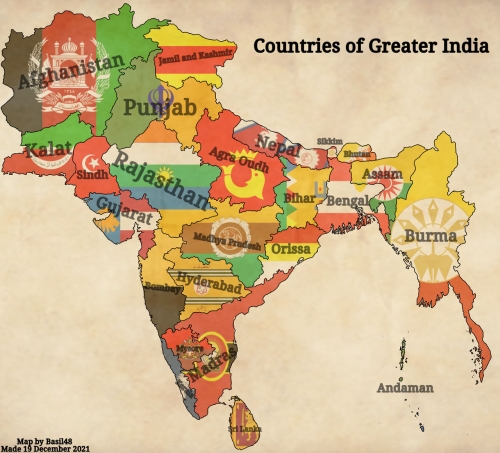
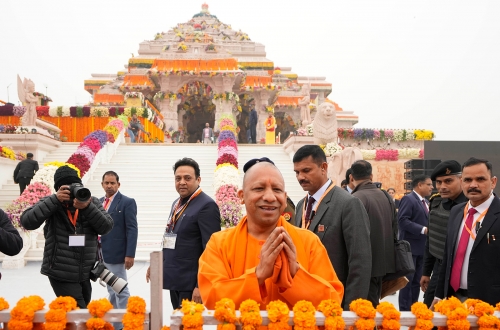
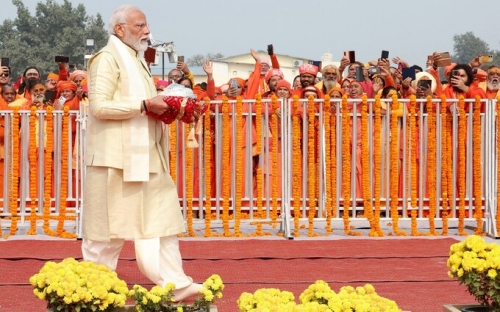
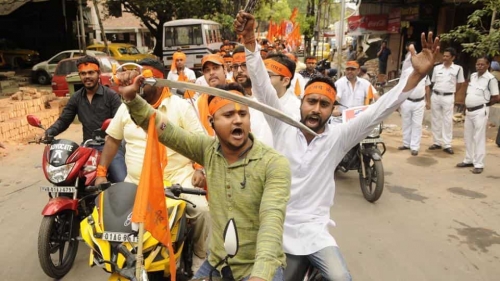
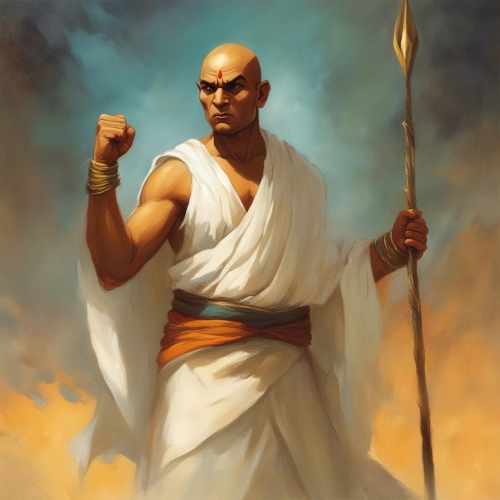
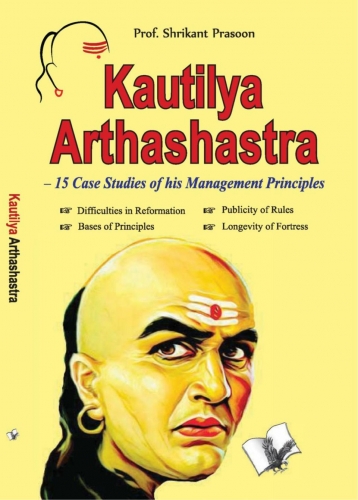
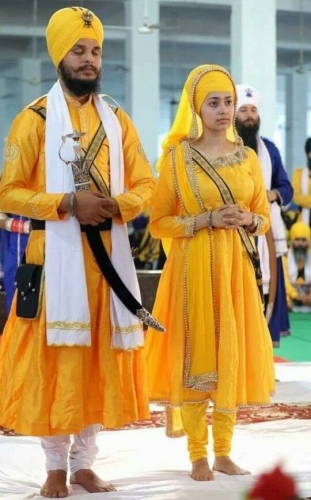
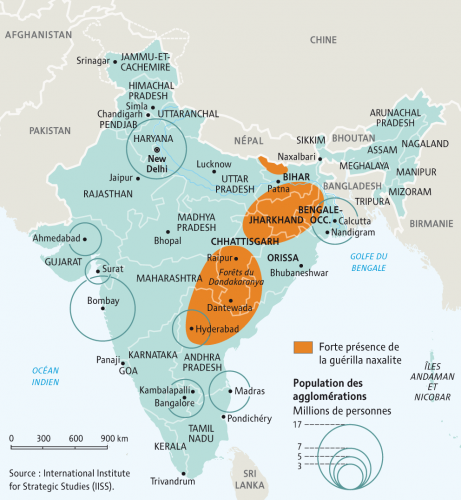
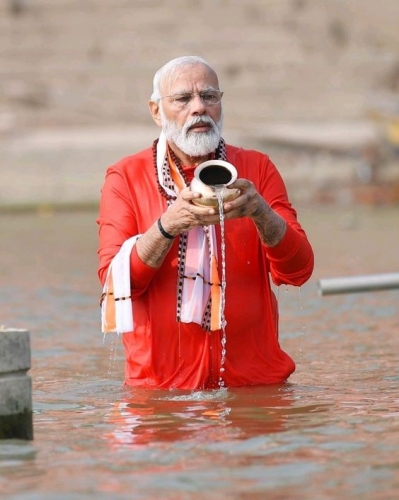
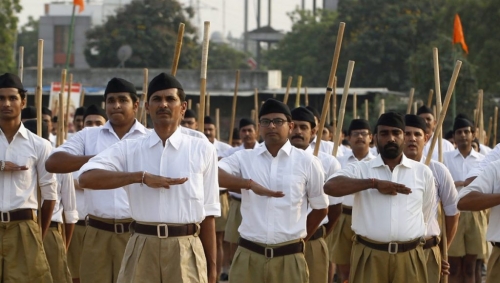
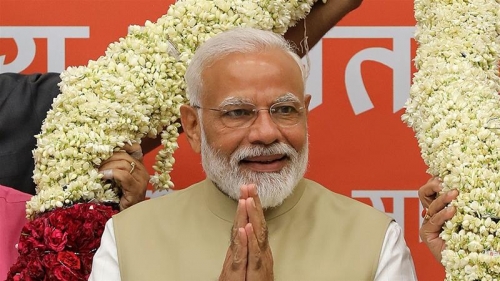
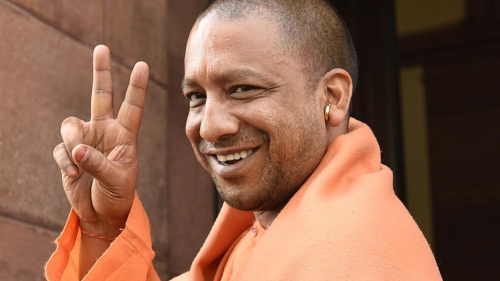
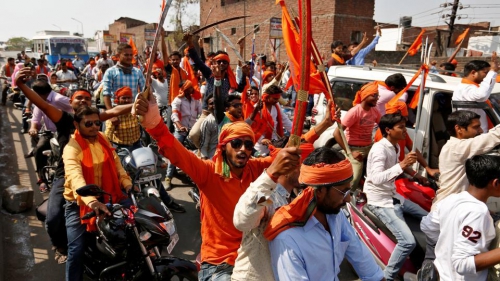
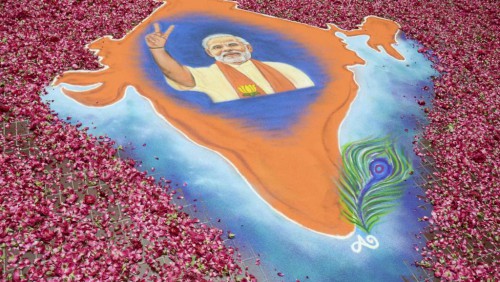 L'Inde est de retour
L'Inde est de retour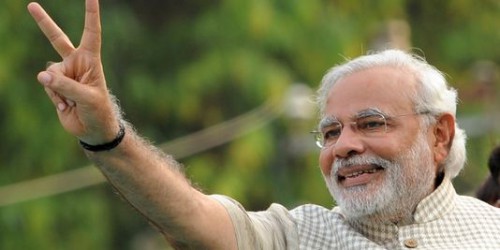
 Le nouveau pouvoir indien est démocratique, mais sous surveillance des Usa car nationaliste. Mais les indiens n’en ont que faire. L’immense victoire du parti nationaliste hindou de Narendra Modi lors des législatives en Inde s'est jouée, comme prévu, sur des questions de politique intérieure et notamment celle de la relance d'une économie en berne. Mais ce succès pourrait aussi aboutir à replacer le pays sur la scène internationale. Le Bharatiya Janata Party (BJP) et le futur chef du gouvernement vont d'abord concentrer leurs efforts sur une nécessaire relance de la croissance. Les relations commerciales et économiques avec les Occidentaux auront à coup sûr une incidence sur la politique que va devoir mener Narendra Modi. Avec la Chine dont l'économie est désormais quatre fois plus importante, le déficit commercial indien s'établit à 40 milliards de dollars, faute à la politique d'exportation menée par Pékin et un certain immobilisme indien.
Le nouveau pouvoir indien est démocratique, mais sous surveillance des Usa car nationaliste. Mais les indiens n’en ont que faire. L’immense victoire du parti nationaliste hindou de Narendra Modi lors des législatives en Inde s'est jouée, comme prévu, sur des questions de politique intérieure et notamment celle de la relance d'une économie en berne. Mais ce succès pourrait aussi aboutir à replacer le pays sur la scène internationale. Le Bharatiya Janata Party (BJP) et le futur chef du gouvernement vont d'abord concentrer leurs efforts sur une nécessaire relance de la croissance. Les relations commerciales et économiques avec les Occidentaux auront à coup sûr une incidence sur la politique que va devoir mener Narendra Modi. Avec la Chine dont l'économie est désormais quatre fois plus importante, le déficit commercial indien s'établit à 40 milliards de dollars, faute à la politique d'exportation menée par Pékin et un certain immobilisme indien.